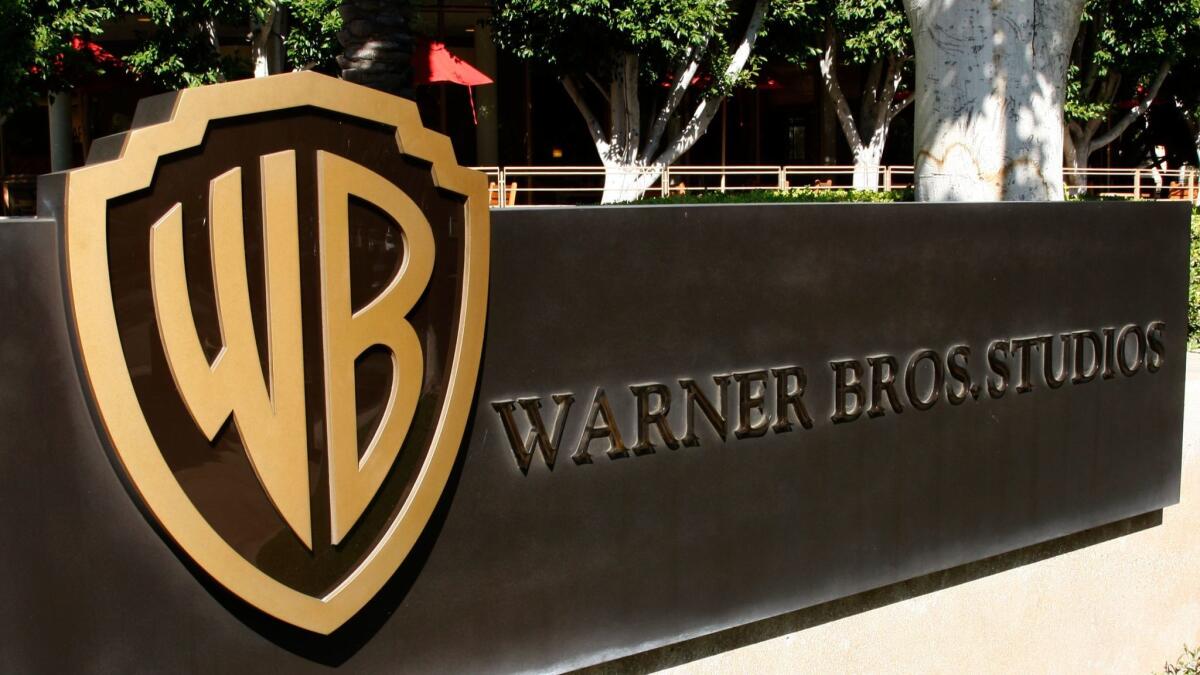More layoffs coming at WarnerMedia as the company struggles under COVID-19

- Share via
Substantial layoffs are coming to AT&T-owned entertainment giant WarnerMedia, as the company continues to restructure its business amid the COVID-19 pandemic and accelerating changes sweeping the industry.
New York-based WarnerMedia, which houses HBO, TBS, TNT and the Warner Bros. film and TV studio, is looking for cost savings that could result in thousands of lost jobs over the next few weeks, according to people familiar with the matter who were not authorized to comment publicly on the plans.
The news comes just months after WarnerMedia in August slashed more than 600 workers from its businesses, mostly affecting the Burbank-based Warner Bros. studio, known for franchises including “Harry Potter,” the DC superheroes and “The Big Bang Theory.”
“Like the rest of the entertainment industry, we have not been immune to the significant impact of the pandemic,” WarnerMedia said in a statement. “That includes an acceleration in shifting consumer behavior, especially in the way they are viewing content. We shared with our employees recently that the organization will be restructured to respond to those changes and prioritize growth opportunities, with emphasis on direct-to-consumer. We are in the midst of that process and it will involve increased investments in priority areas and, unfortunately, reductions in others.”
Ann Sarnoff’s elevation at WarnerMedia came amid a shakeup following the disappointing launch of HBO Max.
WarnerMedia spokesperson Christy Haubegger declined to confirm the number of layoffs, first reported by the Wall Street Journal.
The coronavirus has already dealt a dramatic blow to entertainment companies, leading Walt Disney Co. to announce it would cut 28,000 employees from its parks, experiences and products division. Comcast Corp.’s NBCUniversal has also been forced to make substantial reductions to its workforce as the virus has delayed film releases, shuttered theme parks and made productions more difficult and expensive.
The restructuring comes as the virus’ spread significantly speeds up long-term changes that the entertainment industry was already facing, including the rise of subscription video apps and the decline of TV ratings and movie theater attendance.
WarnerMedia is trying to increasingly focus its business around subscription streaming video through its new service, HBO Max, though the Netflix competitor has gotten off to a disappointing start. The app, which costs $15 a month, drew 4.1 million subscribers in its first month, the company said in July. Disney+, which launched in November, has more than 60 million paying customers.
Warner Bros. recently released “Tenet,” the first big-budget Hollywood movie to brave theaters in the pandemic. However, with theaters struggling to reopen and consumer habits changing, many industry insiders expect studios to send more movies to streaming services and video on-demand platforms. During the shutdown, Warner Bros. released “Scoob” through online rental platforms, for example.
Dallas mobile and broadband giant AT&T in 2018 took over WarnerMedia (then known as Time Warner Inc.) after a protracted battle with U.S. antitrust authorities. Time Warner had about 26,000 workers before the AT&T deal.
In April, the company named Jason Kilar, a former Hulu head, as WarnerMedia’s Chief Executive, replacing John Stankey, now CEO of AT&T. Since then, Kilar has made dramatic changes to WarnerMedia’s multifaceted business. In August, multiple high-level executives, including Bob Greenblatt and Kevin Reilly, left the firm in a major reorganization.
As part of the shakeup, Ann Sarnoff was promoted to head of WarnerMedia’s studios and TV networks group.
More to Read
Inside the business of entertainment
The Wide Shot brings you news, analysis and insights on everything from streaming wars to production — and what it all means for the future.
You may occasionally receive promotional content from the Los Angeles Times.











